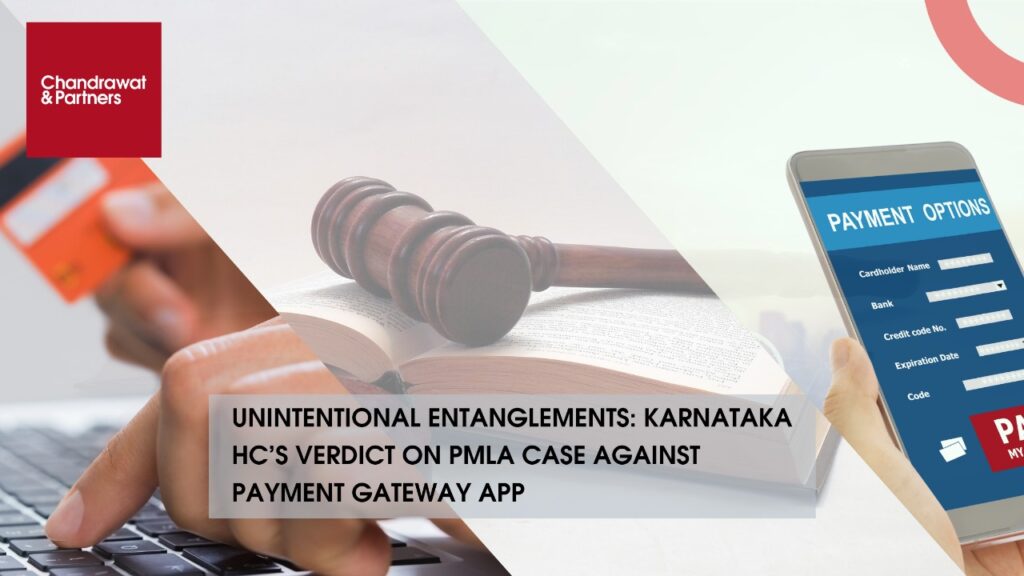Share :
Introduction
In a recent legal development, Razorpay Software Private Limited AND Union of India the Karnataka High Court has made a significant ruling by quashing a Prevention of Money Laundering Act (“the Act”) case against a payment gateway application. The case was centred around the app’s receipt of commission from an entity that was involved in illegal activities. The ruling of the court sheds light on the intricate legal liability issues that arise in the digital economy and highlights the critical importance of clear intent in criminal proceedings.
PREVENTION OF MONEY LAUNDERING ACT
The Act is a crucial piece of legislation enacted by the NDA government in India to curb the menace of money laundering and provide for the confiscation of property derived from such illegal activities. The Act came into force along with the Rules notified thereunder on July 1, 2005, and has since then been instrumental in preventing money laundering and its detrimental effects on the economy and society. The Act aims to make money laundering an unprofitable and risky venture for individuals and entities engaged in such criminal activities and to ensure that the ill-gotten gains of such activities are confiscated by the state.
BACKGROUND
The Karnataka High Court has recently delivered a significant verdict that has far-reaching implications for the Fin-Tech industry. In a case that has been closely watched by many, the court has quashed a money laundering case that was initiated against Razorpay, a prominent payment gateway company. The Enforcement Directorate (“ED”) had accused Razorpay of being involved in laundering money through the commissions it earned from an illegal lending business.
The case in question involved Razorpay providing payment gateway services to a company that was allegedly involved in illegal lending practices. The ED argued that by processing transactions for the company, Razorpay was indirectly facilitating money laundering. However, the court saw things differently and ultimately ruled in favor of Razorpay.
COURT RULINGS
The court observed that the Razorpay case hinges on the concept of “intent”. The Act requires proof that a company knowingly participated in laundering illegal funds. The court found no evidence that Razorpay was aware of the other company’s allegedly illegal activities and had no intention to commit the crime under section 3 of the Act. Since Razorpay simply processed payments for a registered business, the commissions earned were legitimate.
The court then enumerated the essential elements to constitute an offence under Section 3 of the Act:
- Proceeds of crime: Involvement with the property derived from criminal activity.
- Directly or indirectly engaging: Participation in concealing, transferring, or removing the proceeds of the crime.
- Knowledge or reason to believe: The accused must have knowledge or reason to believe that the property involved is derived from a criminal activity related to a scheduled offence.
- Criminal activity: The offence under Section 3 of the Act is linked to the scheduled offences listed in the act.
- Intent: There should be intention on the part of the accused to project the proceeds of the crime as untainted money.
This verdict is a significant win for India’s FinTech industry. It clarifies that payment gateways cannot be automatically blamed for their clients’ money laundering unless there’s clear evidence of intentional wrongdoing. This distinction protects FinTech companies from unnecessary harassment and prevents investigative agencies from overstepping their bounds.
CONCLUSION
The Karnataka HC’s decision is a positive step towards fostering a healthy environment for FinTech businesses in India. It emphasizes the importance of intent in prevention of money laundering cases and protects companies from being unfairly targeted. However, the onus remains on FinTech players to implement robust KYC procedures and stay vigilant against potential misuse of their platforms.
For more information or queries, please email us at
[email protected]




